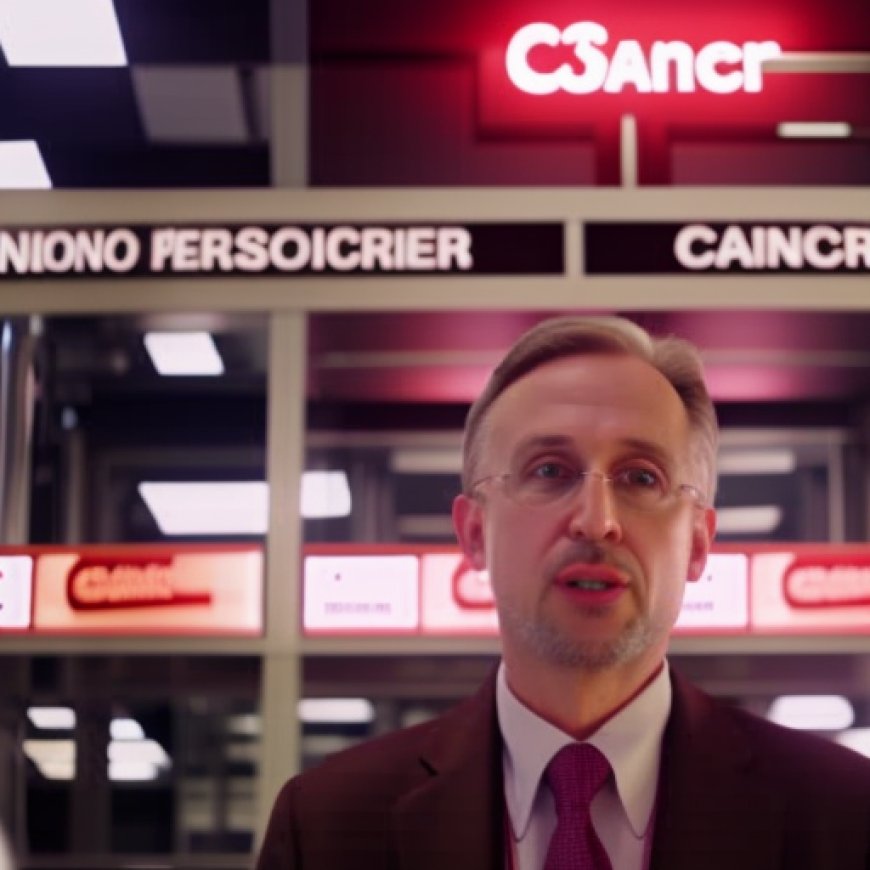An Integrated Approach to Treating Cancer and Cardiovascular Disease: When Oncologists and Cardiologists Collaborate


Cardio-Oncology: A Path Toward Bigger and Bolder Cancer Care
Introduction
At the 2024 Debates and Didactics in Hematology and Oncology Conference, sponsored by Emory’s Winship Cancer Institute, cardiologist-by-training Anant Mandawat, MD, FACC, discussed the emerging field of cardio-oncology and its potential to improve outcomes for patients. Dr. Mandawat is the Director of the Cardio-Oncology Center of Excellence at the Winship Cancer Institute and Assistant Professor of the Department of Medicine at Emory University School of Medicine, Atlanta.

Anant Mandawat, MD, FACC
Heart Disease and Cancer
Heart disease and cancer are the leading causes of death in the United States. Dr. Mandawat emphasized that healthcare professionals from various specialties, including oncologists and cardiologists, often interact with patients who have both heart disease and cancer.
The Impact of Cardiovascular Disease on Cancer Patients
Oncology is at the forefront of medical innovation, with numerous clinical trials and advancements in immunotherapies. However, cardiovascular disease significantly affects cancer patients, leading to worse survival outcomes. Dr. Mandawat highlighted data showing that cancer survivors with cardiovascular disease have the poorest survival rates.
A Clinical Framework for Cardio-Oncology
Dr. Mandawat discussed the competing therapeutic dynamic between cancer and cardiovascular disease. While cancer treatments aim to target and destroy malignant cells, managing heart disease focuses on nourishing and protecting cardiac myocytes. He provided the example of VEGF inhibitors, which can have positive effects on cancer cells but potentially deleterious effects on heart blood vessels.
Collaboration Between Oncologists and Cardiologists
Managing the cardiovascular and cancer risks in patients requires a collaborative approach between oncologists and cardiologists. Dr. Mandawat emphasized that collaboration can lead to more significant treatment options and improved outcomes for patients. He suggested steps for oncologists to connect with cardiologists, including identifying high-risk patients and establishing a co-management plan.
Integrated Approach to Cardio-Oncology
Dr. Mandawat emphasized the importance of an integrated approach to cardio-oncology, starting with assessing baseline cardiovascular health before cancer therapy. Continual assessment of cardiovascular health throughout cancer treatment is crucial to detect any structural heart disease or heart failure. Early detection allows for prompt intervention and better chances of recovery.
Risk Stratification and Clinical Tools
Risk stratification plays a vital role in cardio-oncology. Guidelines have evolved to protect cardiac health during cancer therapy, such as using lower doses of anthracyclines in patients with multiple cardiovascular risk factors. Clinical tools, including the HFA-ICOS cardio-oncology risk calculator and myocardial strain imaging, aid in assessing cardiovascular risk and detecting early signs of cardiotoxicity.
Conclusion
Cardio-oncology offers a path toward bigger and bolder cancer care. By integrating the expertise of oncologists and cardiologists, healthcare professionals can maximize cancer treatment, minimize cardiovascular toxicity, and improve overall outcomes for patients.
References
- Mandawat A: Cardio-oncology: A path toward bigger and bolder cancer care. 2024 Debates and Didactics in Hematology and Oncology Conference. Presented July 26, 2024.
- Maritaz C, Broutin S, Chaput N, et al: Immune checkpoint–targeted antibodies: A room for dose and schedule optimization? J Hematol Oncol 15:6, 2022.
- Shapiro CL: Cancer survivorship. N Engl J Med 379:2438-2450, 2018.
- Armenian SH, Xu L, Ky B, et al: Cardiovascular disease among survivors of adult-onset cancer: A community-based retrospective cohort study. J Clin Oncol 34:1122-1130, 2016.
- Adusumalli S, Alvarez-Cardona J, Khatana SM, et al: Clinical practice and research in cardio-oncology: Finding the ‘Rosetta Stone’ for establishing program excellence in cardio-oncology. J Cardiovasc Transl Res 13:495-505, 2020.
- Mulrooney DA, Yeazel MW, Kawashima T, et al: Cardiac outcomes in a cohort of adult survivors of childhood and adolescent cancer: Retrospective analysis of the Childhood Cancer Survivor Study cohort. BMJ 339:b4606, 2009.
- Armenian SH, Lacchetti C, Barac A, et al: Prevention and monitoring of cardiac dysfunction in survivors of adult cancers: American Society of Clinical Oncology Clinical Practice Guideline. J Clin Oncol. December 5, 2016 (early release online).
- Lyon AR, Dent S, Stanway S, et al: Baseline cardiovascular risk assessment in cancer patients scheduled to receive cardiotoxic cancer therapies. Eur J Heart Fail 22:1945-1960, 2020.
- Thavendiranathan P, Negishi T, Somerset E, et al; SUCCOUR investigators: Strain-guided management of potentially cardiotoxic cancer therapy. J Am Coll Cardiol 77:392-401, 2021.
- Herrmann J: Adverse cardiac effects of cancer therapies: Cardiotoxicity and arrhythmia. Nat Rev Cardiol 17:474-502, 2020.
SDGs, Targets, and Indicators
1. SDGs Addressed or Connected to the Issues Highlighted in the Article:
- SDG 3: Good Health and Well-being
- SDG 4: Quality Education
- SDG 10: Reduced Inequalities
- SDG 17: Partnerships for the Goals
2. Specific Targets Under Those SDGs Based on the Article’s Content:
- SDG 3.4: By 2030, reduce by one-third premature mortality from non-communicable diseases through prevention and treatment and promote mental health and well-being.
- SDG 3.8: Achieve universal health coverage, including financial risk protection, access to quality essential health-care services, and access to safe, effective, quality, and affordable essential medicines and vaccines for all.
- SDG 4.7: By 2030, ensure that all learners acquire the knowledge and skills needed to promote sustainable development, including, among others, through education for sustainable development and sustainable lifestyles, human rights, gender equality, promotion of a culture of peace and non-violence, global citizenship, and appreciation of cultural diversity and of culture’s contribution to sustainable development.
- SDG 10.2: By 2030, empower and promote the social, economic, and political inclusion of all, irrespective of age, sex, disability, race, ethnicity, origin, religion, or economic or other status.
- SDG 17.17: Encourage and promote effective public, public-private, and civil society partnerships, building on the experience and resourcing strategies of partnerships.
3. Indicators Mentioned or Implied in the Article:
- 5-year survival rates for common cancers (improvement)
- Number of cancer survivors
- Survival rates of cancer survivors with cardiovascular disease
- Cardiovascular complications in cancer patients
- Discontinuation of cancer therapy due to cardiac toxicity
- Psychological impact of comorbidity on cancer patients
- Disqualification of cardiovascular disease patients from oncology clinical trials
- Collaboration between cardiologists and oncologists
- Identification of high-risk patients for cardiac complications
- Monitoring of cardiovascular health during cancer therapy
- Assessment of subclinical cardiovascular toxicity
- Decline in ejection fraction or clinical symptoms
- Guidelines for dosing of anthracyclines
- Cardiovascular risk assessment tools
- Cardiotoxicity associated with cancer therapies
Table: SDGs, Targets, and Indicators
| SDGs | Targets | Indicators |
|---|---|---|
| SDG 3: Good Health and Well-being | 3.4: By 2030, reduce by one-third premature mortality from non-communicable diseases through prevention and treatment and promote mental health and well-being. | – 5-year survival rates for common cancers (improvement) – Number of cancer survivors – Survival rates of cancer survivors with cardiovascular disease – Cardiovascular complications in cancer patients – Discontinuation of cancer therapy due to cardiac toxicity – Psychological impact of comorbidity on cancer patients – Disqualification of cardiovascular disease patients from oncology clinical trials |
| SDG 4: Quality Education | 4.7: By 2030, ensure that all learners acquire the knowledge and skills needed to promote sustainable development, including, among others, through education for sustainable development and sustainable lifestyles, human rights, gender equality, promotion of a culture of peace and non-violence, global citizenship, and appreciation of cultural diversity and of culture’s contribution to sustainable development. | – Collaboration between cardiologists and oncologists |
| SDG 10: Reduced Inequalities | 10.2: By 2030, empower and promote the social, economic, and political inclusion of all, irrespective of age, sex, disability, race, ethnicity, origin, religion, or economic or other status. | – Disqualification of cardiovascular disease patients from oncology clinical trials |
| SDG 17: Partnerships for the Goals | 17.17: Encourage and promote effective public, public-private, and civil society partnerships, building on the experience and resourcing strategies of partnerships. | – Collaboration between cardiologists and oncologists |
Source: ascopost.com








